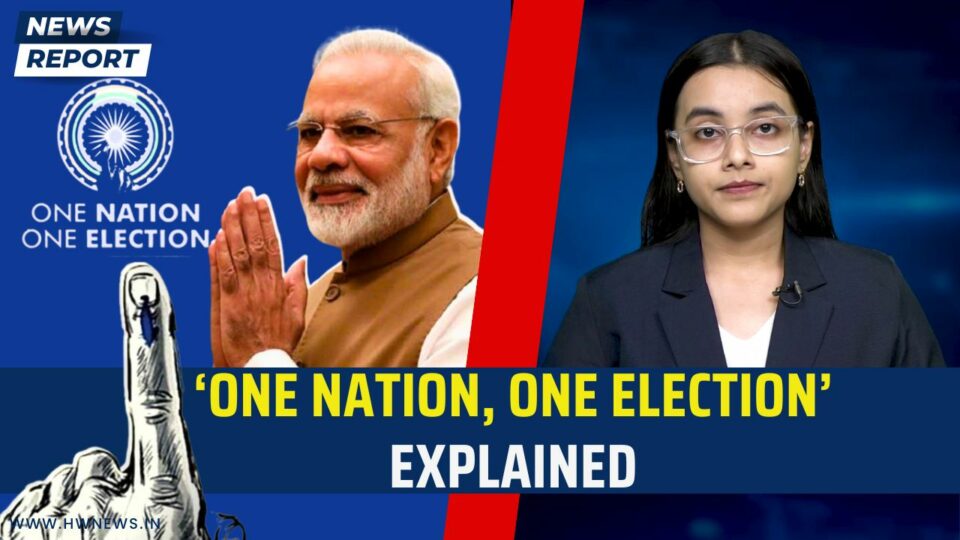The whole political environment of our country changed on Thursday, when the centre government called for a special parliament session from September 18 to 22. This special session of parliament has created a mystery all around the country and among the common public. Speculations are there that the BJP led-government may introduce a bill, also called as ‘One Nation, One Election Bill’. According to the news reports, the BJP-led centre government has formed a panel for the ‘one Nation, One Election’ which is headed by the former president Ramnath Kovind. The reports also reveal that Congress has called this step as Jhumla by the government to divert attention from the key issues. So what is one nation, one election? We have brought to you a simple explanation about what ‘one nation,one election’ means? The idea of ‘One Nation, One Election’ means holding simultaneous elections across the country. This means that if the bill is passed, then elections for the Lok Sabha and all state assemblies across India will be held simultaneously — with voting presumably taking place around the same time. Currently, the state assemblies and the Lok Sabha elections are held separately — after the five-year term of the government ends or if it is dissolved due to various reasons. Now as we are done with the meaning and definition of One Nation, One Election; let me also bring to about the advantages and disadvantages of One Nation, One Election. One of the major advantages of holding simultaneous elections would be that it would reduce the cost involved in holding separate elections. The second big advantage would be that it would boost voter turnout as it will be more convenient for them to cast votes at once. Another advantage of having simultaneous elections is that it would ensure that the programs and schemes of the central and state government remain in continuity because currently whenever elections are held, a ban is put on the launch of new projects for that period of that election. Also, holding simultaneous elections could increase the efficiency in the administrative setup of the country, as it slows down considerably during polling because officials are involved in polling duties. Now, let’s talk about the disadvantages of ‘One Nation, One Election’. First of all, before bringing in ‘One nation, One Election’, it would first require making constitutional amendments to sync up the terms of the state legislative assemblies with that of the Lok Sabha. And, the Representation of the People Act and the parliamentary procedures will also need to be amended. The major hit of ‘One nation, One Election’ would be to the regional parties. The fear of regional parties is that they would not be able to raise their local issues strongly as the national issues take the centre attention. It would also be difficult for the regional parties to compete with the national parties in terms of election expenditure and strategy. Another big disadvantage would be that holding state and Lok Sabha elections simultaneously would delay the results and would require huge machinery and resources. Further, there is a study conducted by IDFC Institute in 2015 which found that if One Nation, One Elections’ are held, then there are chances of 77 percent of voters choosing the same winning political party or alliance in the state assembly and Lok Sabha elections.
#OneNationOneElection #PMModi #RahulGandhi #INDIAAlliance #Election2024 #Parliament #SpecialSession #EarlyElections #BJP #StateElection #RamnathKovind #LokSabha #OppositionMeeting #HWNews
As an independent media platform, we do not take advertisements from governments and corporate houses. It is you, our readers, who have supported us on our journey to do honest and unbiased journalism. Please contribute, so that we can continue to do the same in future.

